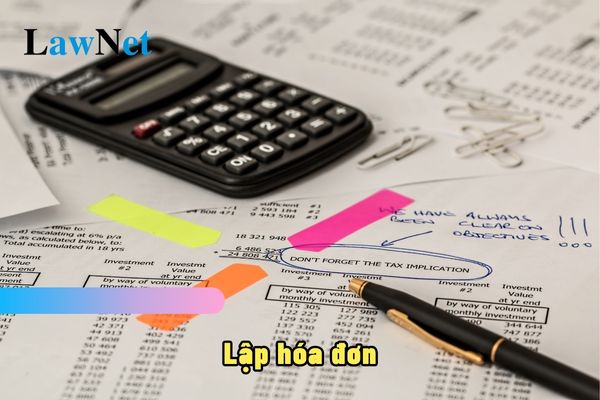Vietnam: Shall the invoices for sales of goods be issued if the payment of the invoiced amount is not made?
Vietnam: Shall the invoices for sales of goods be issued if the payment of the invoiced amount is not made?
Based on Clause 1, Article 9 of Decree 123/2020/ND-CP regulating the timing for issuing invoices as follows:
Timing for Issuing Invoices
1. The timing for issuing an invoice for the sale of goods (including the sale of state assets, confiscated assets allocated to the state budget, and the sale of national reserve goods) is the time of transferring ownership or the right to use goods to the buyer, regardless of whether the payment has been collected or not.
2. The timing for issuing invoices for the provision of services is the time of completing the service provision, regardless of whether the payment has been collected or not. In cases where the service provider collects payment in advance or during the service provision, the timing for issuing an invoice is the time of payment collection (excluding cases of collecting deposits or advance payments to ensure the execution of service contracts like accounting, auditing, financial consulting, tax, valuation, technical survey and design, construction supervision consultancy).
3. If goods are delivered multiple times or services are handed over in stages, an invoice must be issued for each delivery or stage, corresponding to the quantity and value of goods or services delivered.
...
Therefore, as per the above regulation, selling goods to customers but not yet collecting payment still requires issuing an invoice, regardless of whether the payment has been collected or not.

Vietnam: Shall the invoices for sales of goods be issued if the payment of the invoiced amount is not made? (Image from the Internet)
How to apply e-invoices in the sale of goods in Vietnam?
Based on Article 91 of the 2019 Law on Tax Administration on applying e-invoices in the buying and selling of goods as follows:
- Enterprises and economic organizations use e-invoices with the tax authority's code when selling goods, providing services regardless of the value of each transaction, except for cases specified in Clause 2 and Clause 4 of this Article.
- Enterprises in the sectors of electricity, petroleum, telecommunications, clean water, financial credit, insurance, health, e-commerce, supermarket commerce, air transportation, road, rail, maritime, and domestic waterway transport, and enterprises, economic organizations that have or will conduct transactions with tax authorities electronically, have IT infrastructure, accounting software, e-invoicing software, which meet the requirements for issuing, querying e-invoices, and storing e-invoice data as per regulations, ensuring the transmission of e-invoice data to buyers and tax authorities are allowed to use e-invoices without the tax authority's code when selling goods, supplying services, regardless of the transaction’s value, unless in cases of high tax risk as regulated by the Minister of Finance and cases where registration for using e-invoices with the tax authority's code is required.
- Business households and individuals in cases specified in Clause 5 of Article 51 of this Law and other cases where revenue can be determined must use e-invoices with the tax authority's code when selling goods, providing services.
- Business households, individuals not meeting conditions to use e-invoices with a tax authority's code specified in Clause 1 and Clause 3 of this Article but need invoices for customers or cases where enterprises, economic organizations, and other organizations approved by tax authorities to issue e-invoices to customers shall be issued e-invoices with the tax authority's code for each transaction and must declare and pay taxes before tax authorities issue e-invoices for each transaction.
What is the format of e-invoices in Vietnam?
Based on Article 12 of Decree 123/2020/ND-CP regulating the following:
Format of e-invoices
1. The format of e-invoices is a technical standard that prescribes the data type and length of data fields for the transmission, storage, and display of e-invoices. The e-invoice format uses XML (eXtensible Markup Language) created for the purpose of sharing e-data between IT systems.
2. The e-invoice format consists of two components: the data component of the e-invoice and the data component of the digital signature. For e-invoices with a tax authority's code, there is an additional data component related to the tax authority's code.
3. The General Department of Taxation develops and publishes the data component of e-invoices, the data component of digital signatures, and provides tools to display the contents of e-invoices according to the provisions of this Decree.
4. Organizations and enterprises selling goods and providing services when transmitting e-invoice data to tax authorities via direct submission must meet the following requirements:
a) Connect with the General Department of Taxation via a private leased-line channel or MPLS VPN Layer 3 channel, including one primary transmission channel and one backup transmission channel. Each channel must have a minimum bandwidth of 5 Mbps.
b) Use Web Services or Message Queue with encryption as a method of connection.
c) Use the SOAP protocol for data packaging and transmission.
5. e-invoices must be displayed fully and accurately to ensure no misleading interpretation, enabling buyers to read them via e-means.
Therefore, as per the above regulation, e-invoices must be displayed fully and accurately to ensure there is no misunderstanding, allowing buyers to read them through e-means.

